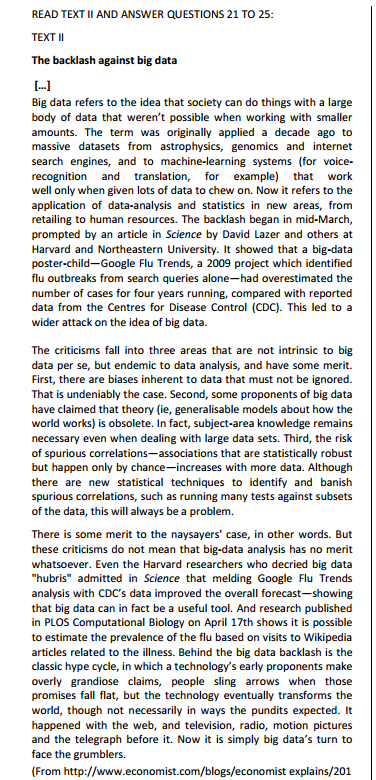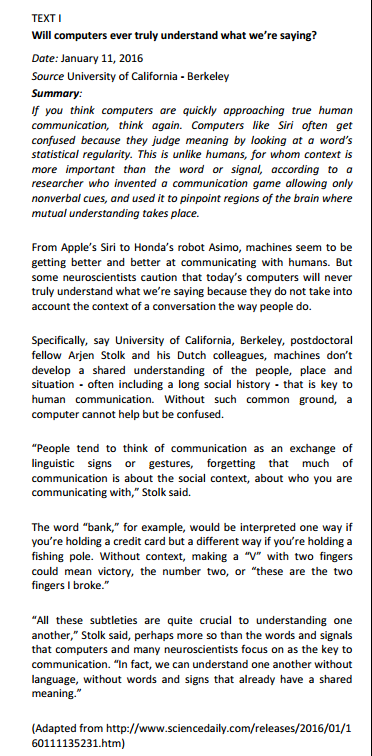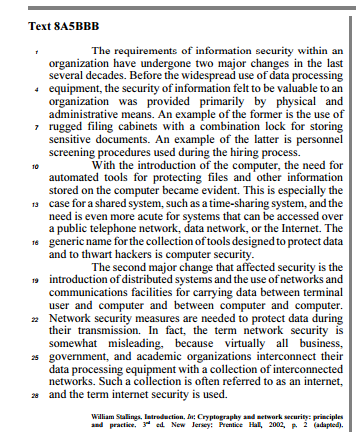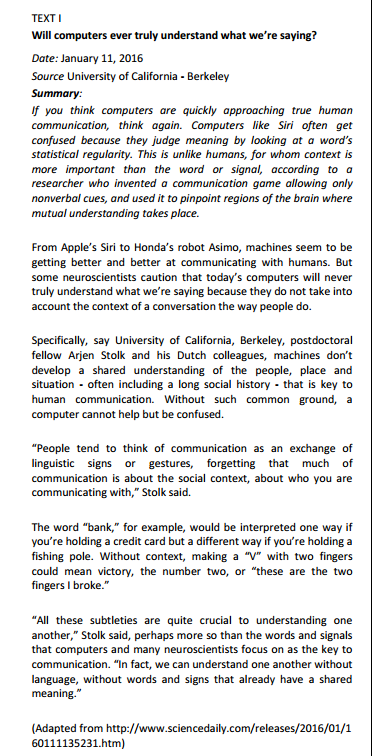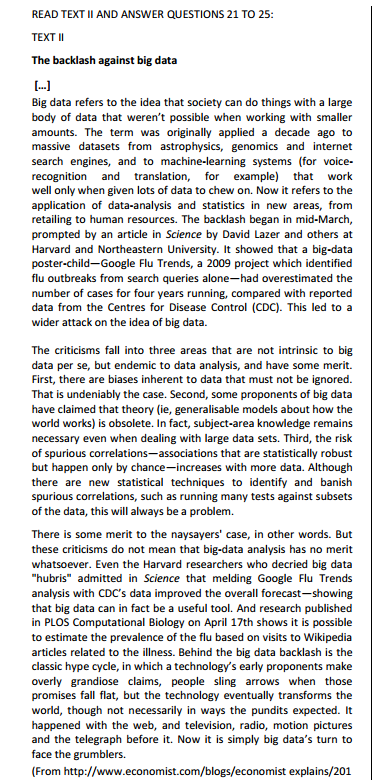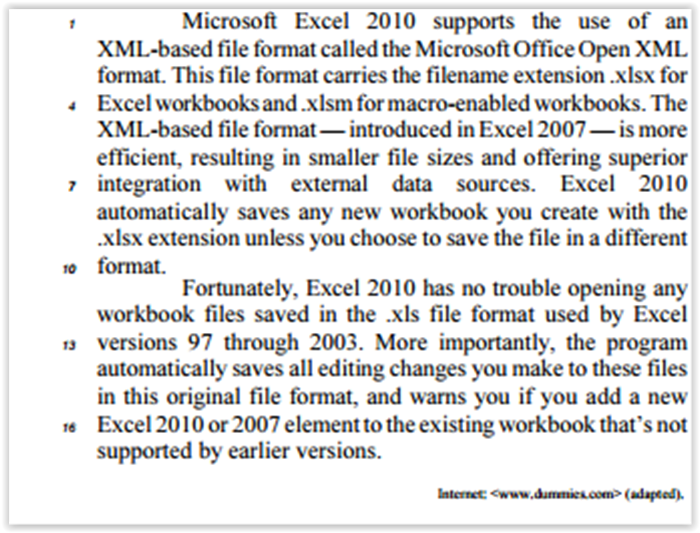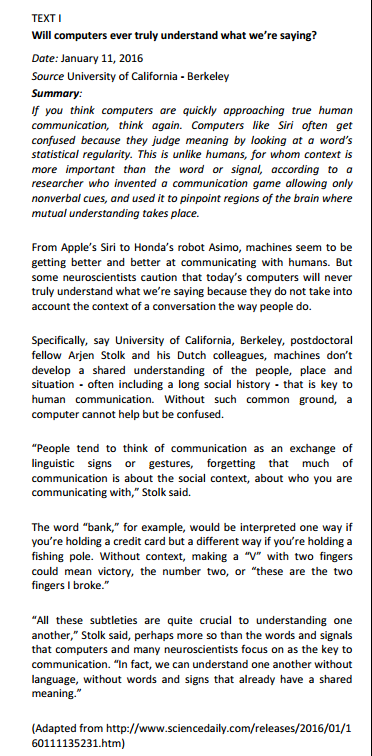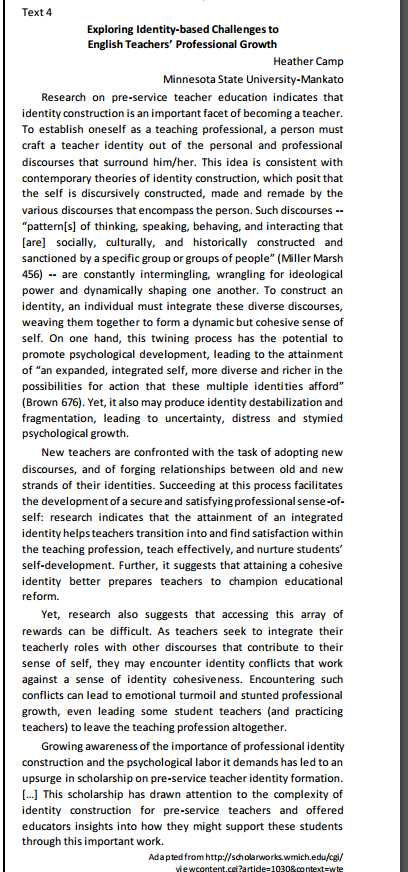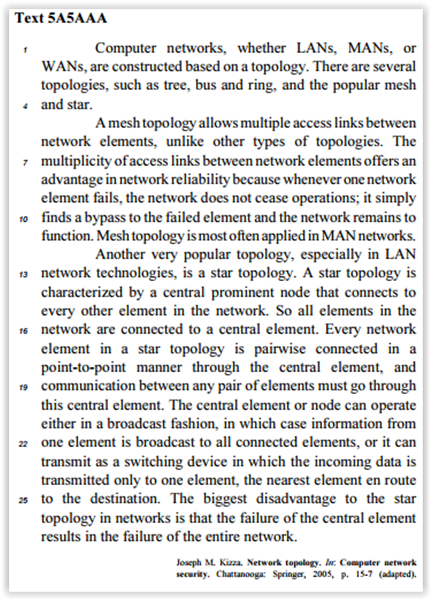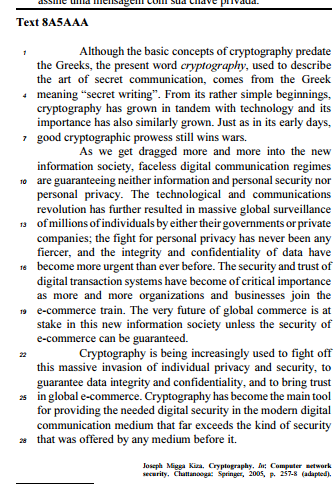The use of the phrase “the backlash” in the title of Text II means the:
In text 8A5BBB, the word “often” (R.27) can be correctly replaced by
The use of the phrase “the backlash” in the title of Text II means the:
In the fragment of the text “Thankfully, this time around, the
outlook for renewable energy isn't so bleak" (lines 11-12), the
word bleak can be replaced, with no change in meaning, by
On the ideas of the text and the vocabulary used in it, judge the next items.
Replacing “earlier” (l.17) by older changes the meaning of the last sentence of the text.
The phrase “stunted professional growth” implies that professional growth may be
READ TEXT I AND ANSWER QUESTIONS 11 TO 15
TEXT I
Will computers ever truly understand what we're saying?
Date: January 11, 2016
Source University of California - Berkeley
Summary:
If you think computers are quickly approaching true human
communication, think again. Computers like Siri often get
confused because they judge meaning by looking at a word's
statistical regularity. This is unlike humans, for whom context is
more important than the word or signal, according to a
researcher who invented a communication game allowing only
nonverbal cues, and used it to pinpoint regions of the brain where
mutual understanding takes place.
From Apple's Siri to Honda's robot Asimo, machines seem to be
getting better and better at communicating with humans. But
some neuroscientists caution that today's computers will never
truly understand what we're saying because they do not take into
account the context of a conversation the way people do.
Specifically, say University of California, Berkeley, postdoctoral
fellow Arjen Stolk and his Dutch colleagues, machines don't
develop a shared understanding of the people, place and
situation - often including a long social history - that is key to
human communication. Without such common ground, a
computer cannot help but be confused.
"People tend to think of communication as an exchange of
linguistic signs or gestures, forgetting that much of
communication is about the social context, about who you are
communicating with," Stolk said.
The word "bank," for example, would be interpreted one way if
you're holding a credit card but a different way if you're holding a
fishing pole. Without context, making a "V" with two fingers
could mean victory, the number two, or "these are the two
fingers I broke."
"All these subtleties are quite crucial to understanding one
another," Stolk said, perhaps more so than the words and signals
that computers and many neuroscientists focus on as the key to
communication. "In fact, we can understand one another without
language, without words and signs that already have a shared
meaning."
(Adapted from http://www.sciencedaily.com/releases/2016/01/1
60111135231.htm)
If you are holding a fishing pole, the word “bank” means a:
In the text 5A5AAA,
“en route" (R.24) can be replaced by on the way without any
change in the meaning of the sentence.
On the ideas of the text and the vocabulary used in it, judge the next items.
In line 9, “unless” can be correctly replaced by except if.
The word ‘robust’ (l.15) can be correctly replaced by effective without this bringing any change of meaning to the sentence.
In the fragment of Text I “CEB research shows that five-in-six hiring managers believe their new graduate hires present a lack of the skills and knowledge they consider necessary” (lines 9-12), the word lack can be replaced, without change in meaning, by

